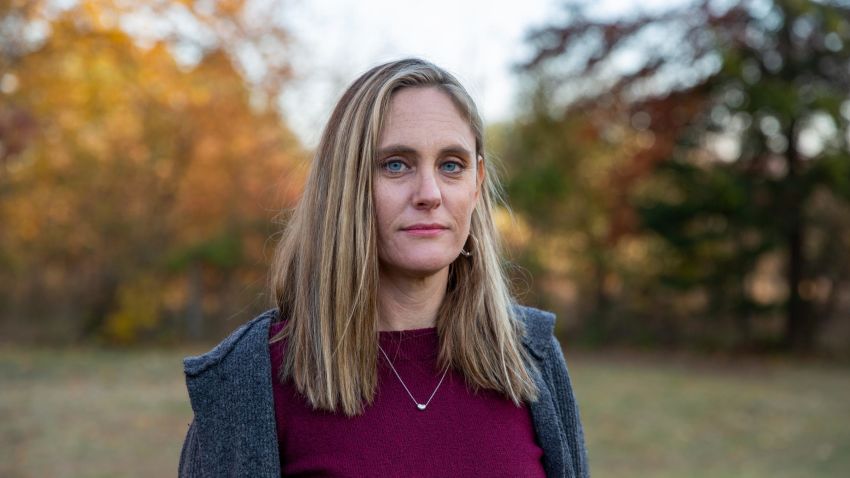Editor’s Note: Kara Alaimo, an associate professor in the Lawrence Herbert School of Communication at Hofstra University, writes about issues affecting women and social media. She was spokeswoman for international affairs in the Treasury Department during the Obama administration. The opinions expressed in this commentary are her own. View more opinion at CNN.
The majority of teens say social media is having a positive or neutral effect on their lives, according to a study released by the Pew Research Center on Wednesday. According to Pew, teens said social media makes them more connected to their friends (80%), gives them a place to be creative (71%) and makes them feel they have support for difficult times (67%). Overall, 32% of teens reported the effect of social media on their lives as mostly positive, compared to 9% who said it’s mostly been negative (59% described it as neutral).

But while a lot of this is encouraging news, I’m sorry, parents – you’re not off the hook when it comes to social media and your kids. The report isn’t a reason to breathe a sigh of relief and stop worrying about social media’s effects. In fact, just the opposite. It should be a wakeup call that we need to be more actively involved in helping our children make their use of social media a positive force while navigating the very real dangers they also face online.
That’s because the report also contains reasons for real alarm. Teens – but especially girls – also described a number of concerning challenges on social media. For example, 45% of girls and 32% of boys felt a lot or a little “overwhelmed because of all the drama,” while 37% of girls and 24% of boys cited feeling a lot or a little “like their friends are leaving them out of things.” Thirty two percent of girls and 27% of boys reported feeling a lot or a little “pressure to post content that will get lots of comments or likes,” while 28% of girls and 18% of boys said social media made them feel a lot or a little “worse about their own life.” Even if these teens are in the minority compared to others in the Pew report, this still means that huge numbers of teens say they are up against significant mental health challenges caused by social media.
We also shouldn’t be so sure that the teens who say social media is having a positive or neutral effect on their lives are exactly right about that. After all, it’s very difficult to untangle the subconscious effects that consuming media can have on us. A teen struggling with an eating disorder who also spends time viewing unrealistic images influencers post on Instagram may well diagnose herself, rather than the platform, as the problem – even if the seeds were planted on social media.
It’s also important to remember that a person’s brain doesn’t fully develop until the age of 25. So, just as we wouldn’t trust the judgment of our teens if they told us not to worry because the alcohol they were experimenting with was having a positive impact on their lives, we can’t be confident that things are OK on social media just because many teens say it is.
Case in point: Only 21% of teens surveyed said they’re very or extremely concerned about the amount of information sites have about them. That’s all the evidence we need that they can be naïve to some of the dangers they face online (as, to be fair, are many adults). After all, the data sites collect about us – to gather information about our spending habits to market and sell us products, for instance – can also be used to track our physical locations in order to stalk or physically harm us, among other things.
But the study does point to how social media can be a positive force because it can help teens feel connected and supported. Many teens also said it’s a place where they can be creative. This could mean exploring different identities and communities that help them develop their sense of self and purpose in life. It can be especially empowering for teens who are racial or sexual minorities in the places where they live to have the opportunity to connect with others like themselves online.
We as parents need to encourage our kids to use social media for these purposes. But we also need to talk to them about the chilling dangers they’re up against online – from misinformation to scams to sextortion (obtaining intimate images or video about someone and then threatening to make them public).
The fact that so many teens say they feel worse about their lives because of social media is especially worrisome. We need to talk to our kids about how the images people post are often highly curated and filtered, so they shouldn’t measure their own bodies and lives against them. We also need to help them navigate the interpersonal “drama” they say they face by discussing how to manage these conflicts in healthy ways. And we need to address the pressure to seek likes by building their self-esteem and teaching our kids to be proud of their accomplishments and values rather than seeking external validation.
Schools also need to implement stronger curriculums that teach teens how to use social media as a source of community and support – and how to process and overcome the feelings of exclusion and unworthiness that can come from being bombarded with the glamorized pictures that friends and influencers post online.
It’s not surprising that teens find plenty to like about social media. But, as parents, it’s up to us to ensure that they use social media in ways that promote their well-being and have the support they need to manage the challenges they find online. We can’t be passive followers – we have to take the lead.




